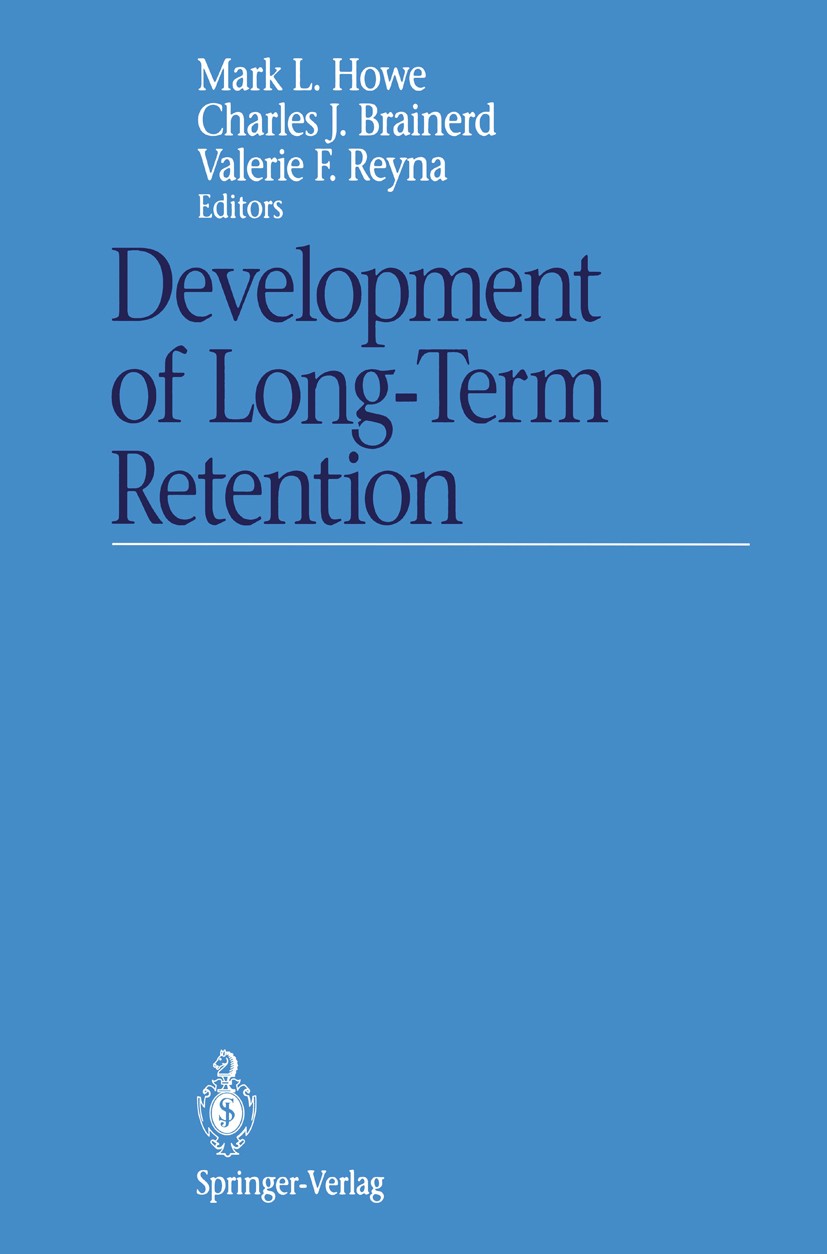| 書目名稱 | Development of Long-Term Retention | | 編輯 | Mark L. Howe,Charles J. Brainerd,Valerie F. Reyna | | 視頻video | http://file.papertrans.cn/270/269977/269977.mp4 | | 圖書封面 |  | | 描述 | For a number of decades now the study of children‘s memory development, with few exceptions, has been synonymous with the development of pro- cesses that lead to the initial encoding and immediate retention of informa- tion. Although there is little doubt that the study of such acquisition pro- cesses is central to understanding memory development, the long-term retention of previously encoded information represents at least as important a component of children‘s memory. Indeed, as both students of memory development and educators, our interest is in the maintenance and utiliza- tion of knowledge over considerable periods of time, not just in the immedi- ate (e. g. , classroom) context. Clearly, then, without an understanding of how recently acquired information is maintained in memory over extended periods of time, our theories of long-term memory development remain incomplete at best. Although children‘s forgetting and reminiscence was a topic of inquiry early in this century, it is only recently, due in part to the current controversy concerning the reliability of children‘s eyewitness testimony, that the study of long-term retention has resurfaced in the scientific literature. | | 出版日期 | Book 1992 | | 關(guān)鍵詞 | Exploration; Ged?chtnis; Langzeitged?chtnis; Training; assessment; development; memory | | 版次 | 1 | | doi | https://doi.org/10.1007/978-1-4612-2868-4 | | isbn_softcover | 978-1-4612-7702-6 | | isbn_ebook | 978-1-4612-2868-4 | | copyright | Springer-Verlag New York, Inc. 1992 |
The information of publication is updating

|
|
 |Archiver|手機(jī)版|小黑屋|
派博傳思國(guó)際
( 京公網(wǎng)安備110108008328)
GMT+8, 2025-10-8 11:58
|Archiver|手機(jī)版|小黑屋|
派博傳思國(guó)際
( 京公網(wǎng)安備110108008328)
GMT+8, 2025-10-8 11:58


